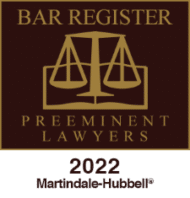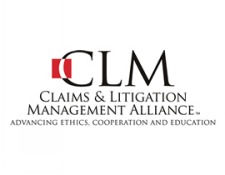Estate Planning Attorneys – Connecticut
The estate planning lawyers at Jackson O’Keefe in Wethersfield, provide sophisticated legal counsel in all matters related to estate planning and probate administration. The firm’s attorneys have a thorough understanding of the tools available to plan for the distribution of your estate, as well as the tax and probate implications of the different strategies. Jackson O’Keefe will work with you to ensure that your estate incurs the minimal tax burden and that your heirs receive the full benefit of your estate.
Whether you are nearing retirement and need a review of your existing estate plan or have yet to put the tools in place to govern the distribution of your estate at death, the lawyers at Jackson O’Keefe can help. The firm provides comprehensive estate planning advice to clients throughout Connecticut. Contact the firm to schedule a consultation.
Some specific strategies include the creation of trusts, the re-titling of assets to avoid probate, and the use of family limited partnerships and other legal mechanisms to safely and easily transfer business and personal assets.
Once you have decided how to proceed, the firm will prepare any documents required to implement your estate plan, including wills, trusts, powers of attorney and health care directives. Jackson O’Keefe will also serve as conservator if your loved one lacks capacity or advise you if you have been appointed as a conservator.
The attorneys at Jackson O’Keefe are committed to providing professional representation as effectively and efficiently as possible. The firm has represented individuals throughout Connecticut for over 50 years. Contact the firm to discuss your estate planning needs.
The Basics of Connecticut Wills
A decedent who left a will is known as a “testator.” Within 30 days of the testator’s death, the will must be brought to the probate court in the district in which he or she had last permanently resided. This is usually the responsibility of the “executor,” a person named in the testator’s will to carry out the terms of the will. Any other person who has knowledge of, or possession of, a will for the testator must deliver the will either to the executor or to the probate court within 30 days of the testator’s death. There is a criminal penalty for failure to do so.In addition to a will, there may be additions or amendments to the will that are known as “codicils.” A codicil is the only legal document that can add to, delete, or modify provisions of a will. Any codicils must also be delivered to the probate court within 30 days of the testator’s death. Before the provisions of a will are carried out, the will must be “probated” or “proved” in the probate court in a proceeding to determine the will’s validity as a legal document. The court approves the appointment of the executor named in the will as part of this process. In the case of a person who dies “intestate,” having left no will, an application for appointment of an administrator to handle the decedent’s affairs and property must be filed in the probate court in the district in which the decedent had her permanent residence at the time of death. This is usually done by the decedent’s surviving spouse, an adult child, or other relative. The court will appoint an administrator who will have the same duties as an executor named in a will. The law favors the appointment of close relatives, such as the spouse or a child. Both the administrator and the executor are referred to as the “fiduciary,” a term used to denote a person (or persons) who holds a position of trust involving the handling of the property of another.
Revocable and Irrevocable Trusts
A living trust can be either revocable or irrevocable. A revocable trust can be changed or revoked after its creation.A person signing an irrevocable trust gives up the right to change or revoke the trust. A revocable trust is devised to supplement a will or to name someone to handle the grantor’s affairs should the grantor become incapacitated. A trust usually must be made irrevocable if the grantor wants to avoid income or estate taxes. Tax authorities consider the grantor of a revocable trust to be the owner of the property because he or she still controls the property. Thus, income from assets held in a revocable trust must be reported as income to the grantor for income tax purposes. At the death of the grantor, property in a revocable trust is included in the estate for calculating estate taxes. An irrevocable trust can be designed to be the beneficiary of a life insurance policy. A “life insurance trust” also may spell out how the policy’s money is distributed to survivors. Irrevocable trusts often are set up to manage money given to minors and to charities. An irrevocable trust can be used to transfer assets to another person in the event that the grantor requires expensive medical care. A trust may protect the grantor’s family by ensuring that the cost of medical care does not wipe out the family fortune; it may also render the grantor ineligible to receive federal and/or state assistance.
The Need for an Updated Connecticut Estate Plan
Every person should have an estate plan. The Will is the core of the estate plan, and may be supplemented with other estate planning documents, such as a trust, beneficiary designation form, durable power of attorney, medical power of attorney, advanced directive, and/or declaration of guardian. In Connecticut, these documents should collectively provide for the disposition of property, make fiduciary appointments, reduce or eliminate estate tax, and reduce estate administration expenses. An estate plan does not have an expiration date. A Will, trust, or other estate planning document is generally effective until revoked.
The estate plan should be reviewed periodically to ensure that the testator’s estate planning goals continue to be met. As a rule of thumb, an estate plan should be reviewed upon the happening of a significant life occurrence (such as the birth of a child, marriage, divorce, change of state or country of residence, or significant change of financial position), or every three to five years regardless of significant life occurrences. Periodic review is critical to determine when an estate plan without Connecticut estate tax planning should be replaced with a plan with estate tax planning.
The function of the Connecticut Probate Court system
In addition to their traditional role of overseeing decedents’ estates and trusts, the probate courts handle a wide range of sensitive issues affecting children, the elderly, persons with mental retardation, and individuals with psychiatric disabilities.
How Connecticut Probate Courts Become Involved In The Settling Of Decedents’ Estates
When a person who owns property dies, the probate court becomes involved to oversee the division of his property among those legally entitled to it. This division of property will be carried out according to the person’s wishes if he had made them known by executing a will. If the person, referred to as a “decedent,” left no will, the property will be divided according to certain laws known as the laws of “intestacy.” In addition to overseeing the distribution of the estate, the probate court will ensure that any debts of the decedent, funeral expenses, and taxes are paid prior to distributing the remaining assets of the estate.
Simplified Procedure for Settling Small Connecticut Estates with Limited Types of Assets
A simplified procedure for settling the Connecticut estate may be available if the total value of the estate assets does not exceed $40,000. In addition, at the time of death the decedent must not own any real estate other than survivorship property, and the estate assets must consist only of personal property and/or an unreleased interest in a mortgage with or without value. This simplified procedure may be used even though survivorship property passed to a survivor as a result of the death of the decedent.
*CV, BV and AV are registered certification marks of Reed Elsevier Properties Inc., used in accordance with the Martindale-Hubbell certification procedures, standards and policies. Martindale-Hubbell is the facilitator of a peer review rating process. Ratings reflect the confidential opinions of members of the Bar and the Judiciary. Martindale-Hubbell Ratings fall into two categories – legal ability and general ethical standards.
Jackson O’Keefe Wethersfield and Southington Estate Planning Attorneys
Jackson O’Keefe, LLP handles estate planning matters throughout the State of Connecticut, including clients in West Hartford, Farmington, Avon, Simsbury, Old Lyme, Wethersfield, Rocky Hill, Moodus, East Haddam, Hadlyme, Hartford, Southington, Plantsville, Hartford County, Middlesex County and New London County.






